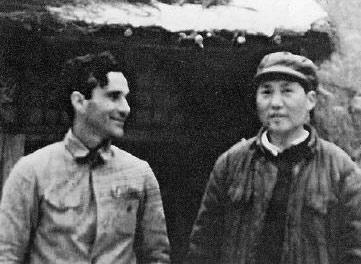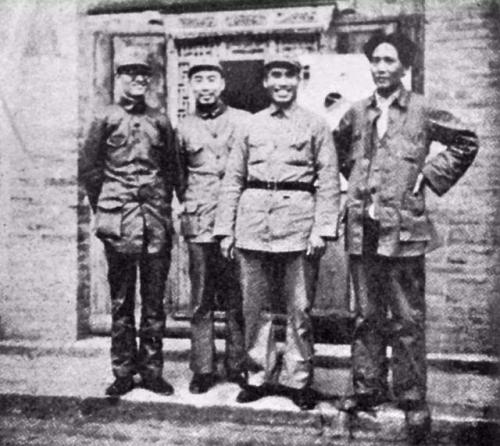'Who is CPC?': Edgar Snow, the first Western journalist to introduce Red China to the world

Mao Zedong and Snow
Zhou Enlai promised Snow he could write about anything he saw and had personally made him a 92-day interview plan. Snow was able to talk to over a hundred Red Army commanders, interviewed soldiers at the front line and recorded their daily life. He also engaged extensively with everyday people. Snow's authentic, first-hand reports presented vastly different pictures as opposed to the Kuomintang propaganda: Mao Zedong, who led the Red Army for a decade, had little personal property other than his quilt and a few clothes, and he refused to wear shoes if the soldiers had none; Zhou Enlai's "only luxury observable" was the mosquito net hanging over his clay bed; Peng Dehuai had a vest made of parachute cloth; and Lin Boqu, the "Minister of the Treasury", used strings to fasten his broken glass frame onto his ears.

Bo Gu, Zhou Enlai, Zhu De and Mao Zedong/ Photo by Edgar Snow
Most Red Army soldiers were peasants and workers who joined to "help the poor and save China". Officers and soldiers were equal, and the casualty rate was high among commanders as they fought side by side with soldiers. The ruddy-faced young soldiers were, as Snow observed, "cheerful, gay, and energetic". In the Soviet Area, schools were opened to provide free education to poor kids. Theaters were free of charge with no exclusive seating or luxury boxes, with officials usually sitting among the audiences. Children called the Red Army "our army". Peasants referred to the government of the Soviet Area as "our government". There were no opium, corruption, slavery or begging. The freedom of marriage was respected and protected. In every Muslim neighborhood they stayed, the Red Army helped guard and clean the mosques. People were impressed by "their careful policy of respecting Islamic institutions", even the most suspicious ones among peasants and imams, according to Snow.
























